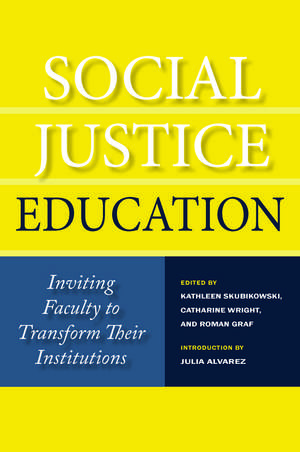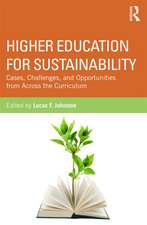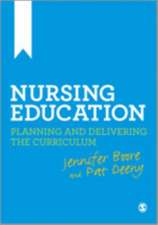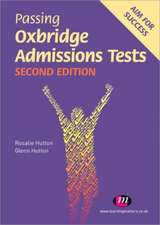Social Justice Education: Inviting Faculty to Transform Their Institutions
Editat de Kathleen Skubikowski, Catharine Wright, Roman Grafen Limba Engleză Paperback – 24 aug 2010
Preț: 248.23 lei
Nou
Puncte Express: 372
Preț estimativ în valută:
47.50€ • 49.31$ • 39.61£
47.50€ • 49.31$ • 39.61£
Carte disponibilă
Livrare economică 01-15 martie
Preluare comenzi: 021 569.72.76
Specificații
ISBN-13: 9781579223618
ISBN-10: 1579223613
Pagini: 268
Dimensiuni: 152 x 229 x 15 mm
Greutate: 0.38 kg
Ediția:1
Editura: Taylor & Francis
Colecția Routledge
Locul publicării:Oxford, United Kingdom
ISBN-10: 1579223613
Pagini: 268
Dimensiuni: 152 x 229 x 15 mm
Greutate: 0.38 kg
Ediția:1
Editura: Taylor & Francis
Colecția Routledge
Locul publicării:Oxford, United Kingdom
Public țintă
PostgraduateCuprins
Foreword by the Editors Introduction. Rapunzel’s Ladder—Julia Alvarez PART I. THEORETICAL PERSPECTIVES ON SOCIAL JUSTICE EDUCATION 1. A Social Justice Education Faculty Development Framework for a Post-Grutter Era—Maurianne Adams and Barbara J. Love; 2. Learning through Story Types about Race and Racism. Preparing Teachers for Social Justice—Lee Anne Bell; 3. Academic Activism and the Socially Just Academy—Glen David Kuecker; 4. From Scientific Imagination to Ethical Insight. The Necessity of Personal Experience in Moral Agency—Arthur Zajonc; 5. Change to Social Justice Education. A Higher Education Strategy—Karen L. St. Clair and James E. Groccia; PART II. COLLABORATIONS 6. Beyond Diversity. Social Justice Education Across the Curriculum—Kathleen Skubikowski; 7. Civics Without Cynics. A Campus-wide, Ethics-based Approach to Social Justice Pedagogy—Meryl Altman, Neil Abraham, Terri Bonebright, and Jeannette Johnson-Licon; 8. On Commitment. If You Don’t Stand for Something, You’ll Fall for Anything—Vijay Prashad; PART III. SOCIAL JUSTICE PEDAGOGY ACROSS THE CURRICULUM 9. Mathematics of, for, and as Social Justice—Priscilla Bremser, Chawne Kimber, Rob Root, and Sheila Weaver; 10. Valued Contingencies. Social Justice in Foreign Language Education—Roman Graf; 11. Shakespeare Meets Social Justice. Incorporating Literature in the Social Sciences—Carolyn Palmer; 12. Writing for Social Change. Building a Citizen-Scholar Discourse that Combines Narrative, Theory and Research—Catharine Wright; 13. Deliberative Dialogue as a Pedagogical Tool for Social Justice—Kamakshi Murti; Afterword. Oblique I Am—Zaheena Rasheed; Index.
Notă biografică
Kathleen Skubikowski is Director, Center for Teaching, Learning and Research and Associate Professor of English at Middlebury College. Catharine Wright is a lecturer and tutor in writing at Middlebury College. Roman Graf is Associate Professor, German Department, and Dean for Insitutional Diversity at Middlebury College. Julia Alvarez
Recenzii
"This book represents a useful resource for anyone planning a workship or faculty development seminar on social justice education. The volume is highly coherent, without being monological."
Teaching Theology and Religion
"This collection of essays on social justice in higher education is at once practical and inspiring. Editors Skubikowski, Wright, and Graf have selected essays that explore how faculty can work to infuse social justice goals at multiple levels in higher education, including the theoretical, intra- and interinstitutional, and pedagogical. The result is an excellent tool for faculty development around questions of social justice teaching—what are its purposes, and how can faculty accomplish it? Readers looking for ways to approach these questions across disciplines and sectors will appreciate this collection and its ambitious yet concrete approach."
Diversity and Democracy
Teaching Theology and Religion
"This collection of essays on social justice in higher education is at once practical and inspiring. Editors Skubikowski, Wright, and Graf have selected essays that explore how faculty can work to infuse social justice goals at multiple levels in higher education, including the theoretical, intra- and interinstitutional, and pedagogical. The result is an excellent tool for faculty development around questions of social justice teaching—what are its purposes, and how can faculty accomplish it? Readers looking for ways to approach these questions across disciplines and sectors will appreciate this collection and its ambitious yet concrete approach."
Diversity and Democracy
Descriere
This book addresses the combination of pedagogical, curricular, and institutional commitments necessary to create and sustain diversity on campus. This book presents the theoretical framework used, and many of the successful projects to which it gave rise.










